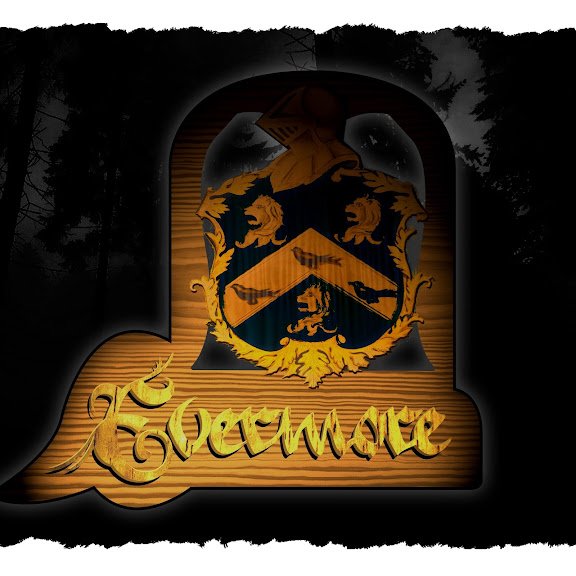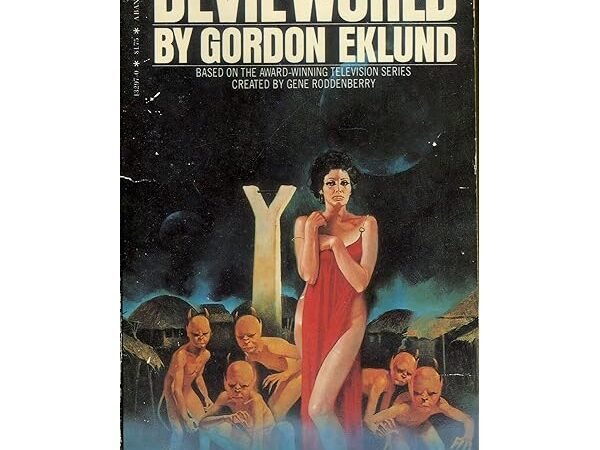- Gordon Eklund
- 1979
- Read: 8/27/22
- Grade: D
It’s fair to say that I was disappointed here. Perhaps a victim of my own expectations, this was the first revisit of an author in the series, and Eklund was the star to this point, so I was excited to see his name again. However, though certainly not the worst entry in the Bantam series, it is far from the mark he set with The Starless World. It could simply be that the content of the story is not as strong, so it did not lend itself to as solid a writing effort. The difference in quality is such that a reader is forced to wonder how a matter of a year could so drastically alter the final product, and while I could speculate about the pressure of contracts and tight deadlines, it is enough to say that Mr. Eklund is certainly a stronger writer than this novel demonstrates.
Pros: The plot is quick and painless and rarely gets diverted from its main purpose. It valiantly attempts to intertwine the themes of immortality, reincarnation, and a superficial discussion of Jainism into its plot, and though it is ultimately undone by clumsy execution, it is a thematic leap that would not be out of place in an episode of the series. The television series was always careful to avoid discussions of the fate of the Earth’s major religions in the far flung future, and it was brave to broach the subject.
Cons: Plot, characterization, setting, climax.
Plot: There is a real struggle here to justify the action of the plot at all. While this problem stems from a very unflattering characterization of Captain Kirk, it is very difficult to see how this story happened at all. While on shore leave at Starbase 13 Kirk, McCoy, and Spock watch a magic show which enrages a female audience member who proceeds to faint. When she awakens, she’s revealed to be a celebrity who is in search of her missing father, a supposed traitor to the Federation. It is revealed that the father, Jacob Kell, might be hiding on a planet called Heartland where the complete population of a human colony was driven mad forty years earlier causing the Federation to permanently quarantine the planet. With little motivation beyond the attractiveness of the woman, Kirk agrees to go, without orders, to endanger his crew, breach quarantine, and rescue Kell. The excuse seems to be one of law enforcement, but neither Kirk nor Commodore Schang had any interest in the magician who had clearly not only violated the quarantine but had absconded with several specimens of the endangered Danon species. This is perhaps more egregious than the novel’s only truly superfluous element, the introduction of Commodore Schang’s derelict son, Albert. The “make a man out of him” character arc is so thin and sparsely commented on that it can hardly be called intrusive, but it has no bearing on the larger plot so it leaves one wondering at its purpose.
Characterization: Kirk does not get his most disastrous abuse here, but he certainly does not come off well. Attempting to create a love story for Kirk in a short span is nothing new. The one hour romance being a hallmark of the show, and the weakness of which is created by its unfitness for the form rather than its execution, forces some truly absurd dialogue and even more inexplicable situations. Most notably, after consolidating the away team into a single cramped hut for safety, having lost crewman Doyle to permanent psychosis the night before, Kirk sends everyone out on various tasks to have a nighttime stroll with Gilla where he professes his love.
Setting: The Danon village is plain and unadorned with no real sense of direction other than frequent references to the center with its twenty meter tall “Y” shaped building. The Danons themselves are interesting in that they are the remnant of an ancient, once galaxy spanning, civilization that has decayed to near extinction. However, they too amount to little more than scenery as they serve little purpose other than to bring consciousnesses to the Machine that governs their existence.
Climax: It is revealed that the Machine at the center of the village, created in a last ditch effort to protect the failing Danon race, had captured Kell into its consciousness to add life and vigor to the collective much like the Borg would attempt to do with Jean Luc. It’s suggested that all of the colonists, and crewman Doyle, were driven mad because they did not have the requisite strength of character to survive the melding process, but there’s no explanation as to why the machine would even need Doyle’s consciousness when it had supposedly gotten what it needed from the successful integration of Kell. In the end, Gilla offers to trade herself for her father, and the machine seems ok with that even though it had shown no interest in allowing anyone to leave prior to that point. The novel ends in the same condition it started with the exception of Gilla, rather than Kell, being connected to the machine. The quarantine is reinforced and the plan is to let the Danons go extinct quietly while Gilla languishes in a living death attached to a collective consciousness. Luckily she has a brain tumor so she was going to die anyway… shy away from this one.

